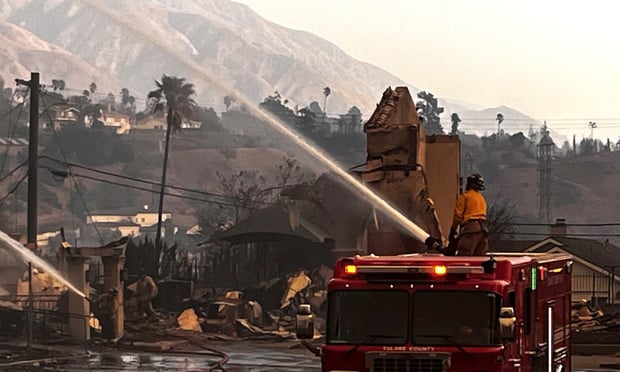NU Online News Service, Jan.15, 3:34 p.m. EST
Insurance experts at an industry conference said the property and casualty sector had performed remarkably well between 2007 and 2009, three of the most challenging years for the economy in decades.
An account of their remarks at the 14th annual Property/Casualty Insurance Joint Industry Forum, held today in New York, was provided by the Insurance Information Institute.
According to panelists who spoke on the "View From the Outside Looking In," businesses with asset risk exposure, such as banks and brokerages, fared much worse during the recession.
P&C insurers do have reason to be concerned about the multiyear decline in net premiums written dating back to 2007, the group agreed, as well as the threat of natural catastrophes, which could cause tens of billions of dollars in insured losses.
"If you look at the performance of the property and casualty industry versus other financial sectors, it has been a stellar performance," said Joseph Guastella, partner, Insurance Industry, Strategy and Operations, Deloitte--something he attributed to the effective risk management practices and prudent supervisory oversight of insurers.
Panelists said the relative calm of the 2009 hurricane season, as well as some reserve releases, were seen as the key reasons p&c insurers' net income after taxes totaled $16.2 billion during the first nine months of 2009, nearly quadruple the $4.4 billion in profits earned a year earlier.
Moreover, the $16.2 billion profit figure was earned entirely in the second and third quarters of 2009, more than offsetting the $1.3 billion loss p&c insurers recorded during the first quarter of 2009, they said, citing the third-quarter 2009 report on p&c industry financial conditions from Insurance Services Office/ Property Casualty Insurers Association of America.
"One of the great untold stories of the last year is how well the insurance sector in general has done," said Professor Scott Harrington, University of Pennsylvania's Wharton School. "Even the life companies, given what happened in residential mortgage-backed securities and asset markets, I think the performance of the overall sector has been truly remarkable."
Therese Vaughan, chief executive officer, National Association of Insurance Commissioners, remarked, "The business model of the property and casualty industry is not as much about asset risk as the other financial sectors are; it's about liability risk."
Ms. Vaughan, a former Iowa insurance commissioner, said, however, that identifying insurers who may face financial trouble remains a challenge, even though regulators track constantly a company's loss reserves and actuarial opinions.
On-site regulatory exams are the only sure way to get a definitive handle on an insurance company's finances, she added, although agents who are on the ground are often the best source of real-time information on an insurer's activities.
Peter Miller, American Institute for CPCU president and the panel's moderator, noted that news for p&c insurers is not all good, pointing out that cumulative net premiums written were down more than 4 percent in 2009, the third consecutive year of decline.
Jay Gelb, director, Barclays Capital, said, "The property and casualty insurance industry is not going to see positive growth any time soon. My estimate is that the industry will probably show a decline in 2010, as well, which would be the worst track record of growth for the industry since the Great Depression."
The economic downturn is impacting commercial insurers more than those who focus on personal lines because commercial insurers' fortunes are tied more closely to the slowdown in new business formation, payroll declines and reduced construction spending, Mr. Gelb added.
In the personal lines market, the panel agreed, larger property insurers are reducing their market share in coastal communities or buying more reinsurance, creating a situation where smaller insurers are taking on more risk.
"The industry is going to take a hit on claims handling when the next big storm comes," predicted Brian Sullivan, editor and publisher of Auto Insurance Report and Property Insurance Report, pointing to the rise of smaller property insurers in states such as Florida.
The panel also concurred with the notion that the creation of a Federal Insurance Office within the U.S. Treasury Department was a likely outcome of the current regulatory reform debate in Washington, D.C.
The Forum is sponsored by: ACORD, American Institute for Chartered Property Casualty Underwriters, American Insurance Association, the Association of Bermuda Insurers and Reinsurers, The Geneva Association, Institute for Business & Home Safety, Insurance Information Institute, Insurance Institute for Highway Safety, International Insurance Society, ISO, National Association of Mutual Insurance Companies, National Council on Compensation Insurance, National Insurance Crime Bureau, Property Casualty Insurers Association of America, Property Loss Research Bureau, and Reinsurance Association of America.
Want to continue reading?
Become a Free PropertyCasualty360 Digital Reader
Your access to unlimited PropertyCasualty360 content isn’t changing.
Once you are an ALM digital member, you’ll receive:
- Breaking insurance news and analysis, on-site and via our newsletters and custom alerts
- Weekly Insurance Speak podcast featuring exclusive interviews with industry leaders
- Educational webcasts, white papers, and ebooks from industry thought leaders
- Critical converage of the employee benefits and financial advisory markets on our other ALM sites, BenefitsPRO and ThinkAdvisor
Already have an account? Sign In Now
© 2025 ALM Global, LLC, All Rights Reserved. Request academic re-use from www.copyright.com. All other uses, submit a request to [email protected]. For more information visit Asset & Logo Licensing.








